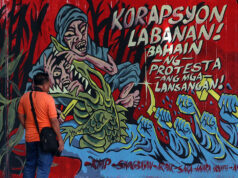UN at risk for usurping state functions — Locsin
THE country’s top diplomat said multilateralism is threatened by its own vain attempts to usurp state functions and return the world to the anarchy of the pre-war period preceding the United Nations.
“As we approach the 75th anniversary of the United Nations, predictions are rife of the demise of multilateralism,” Foreign Affairs Secretary Teodoro L. Locsin, Jr. said in a speech at the UN headquarters in New York at the weekend. The speech was uploaded on the UN website.
“One evidence proffered is the democratic election of strong governments that talk tough and brush aside UN demands,” he said.
But Mr. Locsin said the UN should not be used as a platform against member states’ tough approach to crime.
His comments come after a July 11 resolution, introduced by Iceland, that sought to look into the human rights situation in the Philippines in connection with President Rodrigo R. Duterte’s anti-illegal drug campaign that has killed thousands.
The resolution was adopted by the UN Human Rights Council with a vote of 18 in favor and 14 against, with 15 abstentions. Twenty-four other nations that co-sponsored the resolution did not vote.
The Iceland-sponsored resolution drew the ire of Mr. Duterte, who writhes at Western condemnation of his drive that is widely supported by Filipinos.
Mr. Duterte in August ordered all agencies to reject loans and grants from 41 countries that backed a probe of his deadly war on drugs that has killed thousands.
Philippine police have said they have killed more than 6,000 people in illegal drug raids, many of them resisting arrest. Some local nongovernmental organizations and the national Commission on Human Rights have placed the death toll at more than 27,000.
Mr. Locsin argued Mr. Duterte’s tough approach to criminality remained consistent with the Constitution, and any opposition may be questioned by civil society, but not by the UN.
“That may cause dismay among the civil in society; civil society is free to complain. Better yet, they should run for public office to gain legitimacy and be able to do something about it,” he added.
“But the UN is not free to interfere with the state in its defining function of protecting its citizens and stamping out threats.”
Mr. Locsin asked member states not to use the UN as a platform to threaten other nations with accountability on how it addresses crime.
He said he had crafted a memorandum of understanding on oil and gas that China has accepted.
The deal “allows us to move forward without the slightest compromise or diminution of our respective sovereign and international rights,” he said. “But who can tell?”
He said the Code of Conduct in the South China Sea is still under negotiation, assuring the international body that war in the disputed sea was a “totally remote possibility.”
“So the COC is a code of reality: the reality of the proximity of the soon-to-be biggest economy in the world in one place; with a commensurate industrial war-making capacity,” he said.
“But war is a totally remote possibility. All parties have built so much and achieved such material progress that none of us, nor any outside power, will risk losing the richest market in the world.” — Charmaine A. Tadalan


